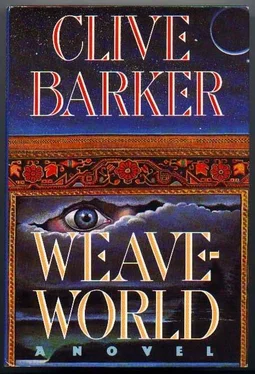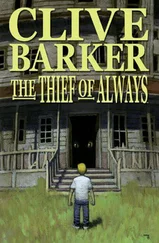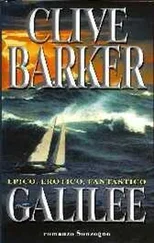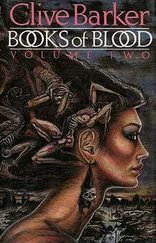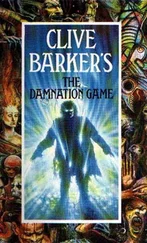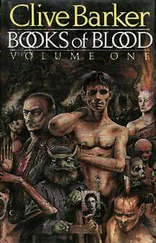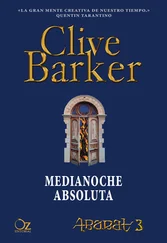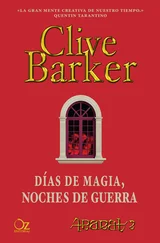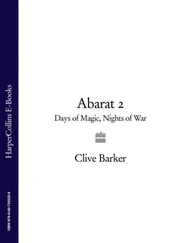Clive Barker - Weave World
Здесь есть возможность читать онлайн «Clive Barker - Weave World» весь текст электронной книги совершенно бесплатно (целиком полную версию без сокращений). В некоторых случаях можно слушать аудио, скачать через торрент в формате fb2 и присутствует краткое содержание. Жанр: Фантастика и фэнтези, на английском языке. Описание произведения, (предисловие) а так же отзывы посетителей доступны на портале библиотеки ЛибКат.
- Название:Weave World
- Автор:
- Жанр:
- Год:неизвестен
- ISBN:нет данных
- Рейтинг книги:4 / 5. Голосов: 1
-
Избранное:Добавить в избранное
- Отзывы:
-
Ваша оценка:
- 80
- 1
- 2
- 3
- 4
- 5
Weave World: краткое содержание, описание и аннотация
Предлагаем к чтению аннотацию, описание, краткое содержание или предисловие (зависит от того, что написал сам автор книги «Weave World»). Если вы не нашли необходимую информацию о книге — напишите в комментариях, мы постараемся отыскать её.
Weave World — читать онлайн бесплатно полную книгу (весь текст) целиком
Ниже представлен текст книги, разбитый по страницам. Система сохранения места последней прочитанной страницы, позволяет с удобством читать онлайн бесплатно книгу «Weave World», без необходимости каждый раз заново искать на чём Вы остановились. Поставьте закладку, и сможете в любой момент перейти на страницу, на которой закончили чтение.
Интервал:
Закладка:
A new voice now entered the controversy; one she was surprised to hear: that of Apolline. Suzanna hadn't even been aware of the woman's presence in the room until she rose from a cloud of tobacco smoke and addressed the company.
‘I'm not going to lie down and die for anyone,' she said. ‘Especially not you, Hamel.'
Her defiance echoed that of Yolande Dor, back in Capra's House: it seemed always to be the women who argued most vehemently for life.
‘What about Shadwell?' somebody said.
‘What about him?' said Apolline. ‘You want to go kill him, Hamel? I'll buy you a bow and arrow!'
The remark won over-enthusiastic laughter from some quarters, but only served to infuriate the opposition more.
‘We're practically extinct, sister,' Hamel replied, his scorn lavish. ‘And you're not too fertile these days.'
Apolline took the taunt in good humour.
‘Want to try me?' she said.
Hamel's lips curled at the suggestion.
‘I had a wife - ‘ he said.
Apolline, taking her usual pleasure in offending, jiggled her hips at Hamel, who spat in her direction. He should have known better. She spat back, only more accurately. Though the missile was harmless enough he responded as though he'd been stabbed, throwing himself towards Apolline with a cry of rage. Somebody got between them before he could land a blow, and he struck out instead at the peace-maker. The assault ended any lingering pretence to civilized debate: the whole assembly began shouting and arguing, while Hamel and the other man traded punches amongst the overturned chairs. It was Apolline's pimp who parted them. Though the fight had lasted no more than a minute, both had taken a beating, and were bleeding at mouth and nose.
Suzanna watched with a heavy heart as Nimrod attempted to calm proceedings. There was so much she wanted to talk with the Kind about: problems upon which she needed their advice; secrets - tender and difficult - which she wanted to share. But while things were so volatile she feared voicing these matters would simply be further fuel for dissension.
Hamel took his leave, cursing Suzanna, Apolline and all who - as he put it - ‘sided with the shit'. He didn't go unaccompanied. Two dozen left with him.
There was no serious attempt to return to the debate after this eruption; the meeting had effectively been brought to a halt. No one was in any mood to make balanced decisions, nor were they likely to be so, at least until a little time had passed. It was concluded, therefore, that the survivors would disperse, and lie low in any safe place they could find. There were so few of them left that melting amongst the populous would not prove too difficult. They'd wait out the winter, until the reverberations had died down.
2
Suzanna parted from Nimrod after the meeting, leaving instructions with him as to her whereabouts in London. She was exhausted; she needed to rest her head awhile.
After two weeks back at home, however, she discovered that attempting to restore her energies by doing nothing was a sure route to lunacy, and instead returned to work at the studio. It proved a wise move. The problems of re-establishing a working rhythm distracted her from dwelling too much on the losses and failures of recent times; and the very fact of making something - even if it was only pots and plates - answered the need she had to begin again. She'd never been so aware of day's mythic associations as now, of its reputation as the first stuff, the base matter from which story-book nations had taken shape. Her skill could only manage pots not people, but worlds had to begin somewhere. She worked long hours, with just the radio and the smell of the clay for company, her thoughts never completely free of melancholy, but lighter than she'd dared hope.
Hearing that she was back in town, Finnegan appeared on her doorstep one afternoon, spruce as ever, to invite her out to dinner. It was strange to think of his waiting for her while she'd been adventuring; and touching too. She accepted his invitation, and was more thoroughly charmed by his company than she ever remembered being. He, forthright as ever, said that they were made for each other, and should marry immediately. She told him she made a rule of never marrying bankers. The next day he sent flowers, and a note saying that he'd relinquish his profession. They saw each other regularly thereafter. His warmth and easy manner were the perfect diversion from the darker thoughts that still threatened to intrude when she had time to think.
Every now and then, through the summer months and into the early autumn, she had some brief contact with members of the Kind, though they were kept to the minimum, for safety's sake. The news seemed to be good. Many of the survivors had returned to the vicinity of their ancestors' homes, and found niches there.
Better news still, there was no sign of either Shadwell or Hobart. There were rumours that Hamel had instigated a search for the Salesman, and had given up after failing to uncover a single clue as to the enemy's whereabouts. As for the remnants of his army - those Seerkind who'd embraced the Prophet's visions - they'd been the authors of their own punishment, waking from their evangelical nightmare to find it had destroyed all they held dear.
Some had sought forgiveness from their fellows, and had arrived, shamefaced and despairing, at that controversial meeting. Others, the grapevine confirmed, had been overcome by remorse, and had spiralled into dereliction. Some had even taken their own lives. There were yet others, she'd heard -the born blood-letters amongst the Kind - who'd left the battlefield regretting nothing, and gone out into the Kingdom in search of further violence. They would not have to look far.
But rumour and supposition apart, there was little to report. She got on with trying to make sense of her old life, while they made new lives for themselves. As to Cal, she followed his rehabilitation through Kind who'd gone to ground in Liverpool, but made no direct contact. This was in part a practical decision: it was wiser that they kept their distance from each other until they were certain the enemy had disappeared. But it was also an emotional consideration. They had shared much, in the Fugue and out. Too much to be lovers. The Weaveworld occupied the space between them - it had from the beginning. That fact made a nonsense of any thought of a domestic or romantic arrangement. They'd seen Hell and Heaven together. After that, surely everything else was bathos.
Presumably Cal felt the same, because he made no attempt at contacting her. Not that it was necessary. Though they neither saw nor spoke to each other she felt his constant presence. She had been the one to nip in the bud any possibility of physical love between them, and she had sometimes regretted that; but what they shared now was perhaps the highest aspiration of all lovers: between them they held a world.
3
In the middle of October her work started to take a new and completely uncharacteristic turn. For no particular reason she forsook her plates and bowls and began to work figuratively. The results gained her few admirers, but they satisfied some inner imperative which would not be gainsaid.
Meanwhile, Finnegan pressed his suit with dinners and flowers, his attentions redoubling each time she politely rejected him. She began to think there was more than a streak of the masochist in his nature, coming back as he did each time she sent him on his way.
Of all the extraordinary times she'd had since she'd first become part of the Fugue's story, these were in their way the strangest, as her experience of the Weaveworld and that of her present life did battle in her head for the right to be called real. She knew this was Cuckoo thinking; that they were both real. But her mind would not marry them - nor her place in them. What did the woman Finnegan proclaimed his love for - the smiling, clay beneath the fingers Suzanna - have to do with the woman who'd stood face to face with dragons? She came to wish she couldn't evoke those mythic times as well as she could, because afterwards she'd feel sick with the triviality of being herself.
Читать дальшеИнтервал:
Закладка:
Похожие книги на «Weave World»
Представляем Вашему вниманию похожие книги на «Weave World» списком для выбора. Мы отобрали схожую по названию и смыслу литературу в надежде предоставить читателям больше вариантов отыскать новые, интересные, ещё непрочитанные произведения.
Обсуждение, отзывы о книге «Weave World» и просто собственные мнения читателей. Оставьте ваши комментарии, напишите, что Вы думаете о произведении, его смысле или главных героях. Укажите что конкретно понравилось, а что нет, и почему Вы так считаете.
